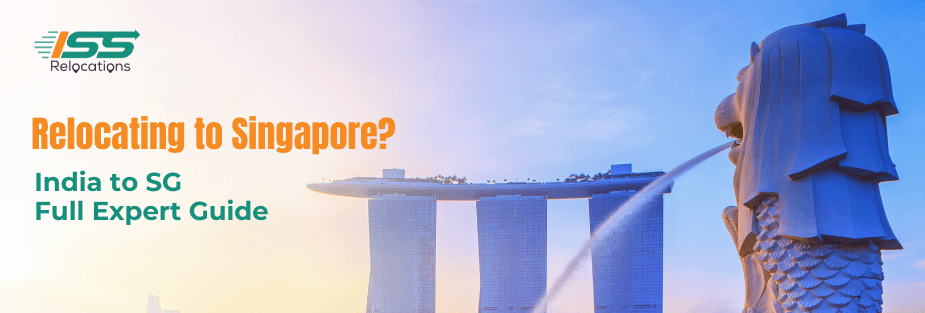
The Pros and Cons of Living in Bulgaria after moving from Dubai in 2025
Bulgaria is quickly emerging as a top destination for expats looking for a balance between affordability, lifestyle, and European access. Many Dubai residents are considering relocating to Bulgaria for its lower cost of living, scenic landscapes, and access to EU markets. Unlike Dubai, which is known for its fast-paced, high-income lifestyle, Bulgaria offers a quieter, more nature-filled experience with a strong cultural heritage.
Living in Bulgaria provides expats with a lower cost of housing, cheaper transportation, and an overall more budget-friendly lifestyle compared to Dubai. However, moving to a new country requires careful planning and understanding of the benefits and challenges. ISS Relocations specializes in making international moves seamless, offering expert support for individuals and families transitioning to a new life in Bulgaria.
Living in Bulgaria After Moving from Dubai: What to Expect
Adjusting to life in Bulgaria after living in Dubai can be both exciting and challenging. From the cultural environment to economic differences, moving to Bulgaria requires an understanding of what daily life will look like.
Cultural Adaptation in Bulgaria
Living in Bulgaria brings a shift in cultural experience. Unlike Dubai’s diverse expatriate population, Bulgaria has a predominantly local culture. While major cities like Sofia and Plovdiv have expat communities, foreigners will need to adapt to Bulgarian traditions, social norms, and customs.
Climate Differences Between Dubai and Bulgaria
One of the biggest changes for those moving from Dubai is adapting to Bulgaria’s climate. Unlike Dubai’s year-round warm temperatures, Bulgaria experiences all four seasons. Winters can be particularly cold, with snowfall across the country, while summers are pleasant and mild. Those used to Dubai’s constant heat may find Bulgaria’s winter challenging but refreshing.
Language Considerations
Living in Bulgaria means adjusting to a different linguistic environment. While English is widely spoken in Dubai, Bulgarian is the primary language in Bulgaria. Expats may face communication barriers, especially in smaller towns. Learning basic Bulgarian phrases can make daily interactions easier, particularly when dealing with government offices or shopping in local markets.
Cost of Living Adjustments
Living in Bulgaria is significantly cheaper than living in Dubai. The difference in housing, food, transportation, and utilities makes Bulgaria an attractive option for those looking to cut down expenses. A comfortable lifestyle is much more affordable, even with lower salaries compared to Dubai’s tax-free income.
Pros of Living in Bulgaria After Moving from Dubai
For expats relocating from Dubai, Bulgaria offers several advantages, making it a desirable place to settle. From lower living costs to business opportunities, Bulgaria provides many benefits that Dubai residents may find appealing.
Affordable Cost of Living
One of the biggest draws of living in Bulgaria is its affordability. Compared to the high expenses in Dubai, Bulgaria offers much lower housing prices, inexpensive groceries, and affordable public services.
Lower Housing Costs in Bulgaria
Renting a home in Bulgaria is significantly cheaper than in Dubai. In cities like Sofia and Varna, a one-bedroom apartment in the city center costs between €300 and €500 per month, whereas a similar apartment in Dubai could exceed €1,500. For those interested in buying property, Bulgaria offers affordable real estate opportunities, making homeownership a realistic goal.
Cheaper Food and Dining Expenses
Living in Bulgaria allows expats to enjoy high-quality food at a fraction of Dubai’s costs. A full meal at a local restaurant can cost as little as €10, while in Dubai, a similar meal could be three times the price. Fresh produce, dairy, and meats are widely available at local markets, further reducing food expenses.
Affordable Transportation and Utilities
Public transportation in Bulgaria is budget-friendly, with a monthly metro pass costing around €25. Taxi fares and fuel prices are also lower than in Dubai. Additionally, utilities, including electricity and water, are much cheaper, making daily living costs far more manageable.
Access to EU Markets & Residency Benefits
One of the major advantages of living in Bulgaria is the opportunity to access European markets and residency benefits. Expats moving from Dubai can benefit from Bulgaria’s EU membership, which provides business and travel opportunities across Europe.
Residency and Citizenship Options
Living in Bulgaria offers several pathways to residency and citizenship. Foreigners can obtain long-term residence through business investment or property purchases. After five years of continuous residence, expats can apply for Bulgarian citizenship, granting them access to the EU. This is a significant advantage for those looking for permanent relocation options outside Dubai.
Business Opportunities and EU Trade Access
For entrepreneurs and business professionals, Bulgaria provides access to European trade markets. Living in Bulgaria allows expats to establish businesses with lower corporate taxes, reduced operational costs, and easier trade access within the EU. The country’s favorable tax system, with a flat 10% corporate tax rate, makes it an attractive location for startups and investors looking for European expansion.
Natural Beauty & Outdoor Lifestyle
One of the major draws of living in Bulgaria is the abundance of natural landscapes and outdoor activities. Unlike Dubai, which is characterized by towering skyscrapers and desert surroundings, Bulgaria boasts stunning mountains, lush forests, and picturesque coastal regions.
Bulgaria’s Diverse Landscapes
Expats living in Bulgaria can enjoy breathtaking scenery, including the Balkan Mountains, Rila National Park, and the serene Black Sea coastline. The country’s natural beauty provides countless opportunities for outdoor adventures such as hiking, skiing, and exploring historical villages, offering a sharp contrast to Dubai’s urban environment.
Outdoor Activities Throughout the Year
Unlike Dubai, where extreme summer heat limits outdoor activities for months, Bulgaria offers seasonal diversity. Winter in Bulgaria means skiing in resorts like Bansko and Borovets, while summer is perfect for beach trips to Varna or Sozopol. Spring and autumn provide ideal weather for hiking in the Rhodope Mountains or exploring the countryside.
Clean Air and Green Spaces
Living in Bulgaria provides a healthier environment with fresh air and green surroundings. Unlike Dubai, where air quality can be affected by dust storms and urban pollution, Bulgaria’s vast forests and parks create a more breathable atmosphere. The availability of green spaces encourages outdoor recreation, improving overall well-being for residents.
Lower Population Density & Less Crowding
One of the major advantages of living in Bulgaria is the lower population density, which provides a more peaceful and stress-free environment compared to Dubai. Bulgaria’s cities and towns are significantly less crowded, making everyday life more comfortable.
A More Relaxed Lifestyle
Expats moving from Dubai often appreciate the slower pace of life in Bulgaria. The lack of overcrowding means less traffic congestion, shorter queues, and a generally calmer atmosphere. While Dubai is known for its 24/7 lifestyle, Bulgaria offers a more balanced routine, allowing residents to enjoy their time without constant rush.
Less Congestion in Urban Areas
Even in major cities like Sofia and Plovdiv, living in Bulgaria is far less crowded than in Dubai. Roads are more manageable, public spaces are not as packed, and commuting is much easier. The reduced population density makes for a more pleasant day-to-day experience.
Spacious and Affordable Housing
Housing in Bulgaria is not only more affordable but also more spacious than in Dubai. Many expats find that they can afford larger homes with gardens or outdoor spaces, something that is a luxury in Dubai’s high-rise living environment. The cost of real estate in Bulgaria is significantly lower, making it easier for foreigners to buy property and settle comfortably.
Thriving Expat Community & Local Hospitality
Although Bulgaria has a predominantly local population, expats relocating from Dubai will find that there is a growing international community, especially in major cities. The welcoming nature of the locals makes the transition to living in Bulgaria easier.
Active Expat Communities in Bulgaria
Sofia, Plovdiv, and Varna have established expat communities where newcomers can find support, social groups, and networking opportunities. Many expats from Dubai choose Bulgaria for its affordability, and finding others with similar experiences makes adjusting to a new country easier.
Friendly and Welcoming Locals
While Dubai is known for its multicultural environment, Bulgaria offers a more immersive experience in local culture. Bulgarians are known for their hospitality and warmth, and expats who take the time to learn about local traditions and customs often feel welcomed.
International Schools and Services for Expats
For families moving from Dubai, living in Bulgaria is made easier by the availability of international schools in Sofia and other major cities. These schools offer English-language education and globally recognized curricula. Additionally, private healthcare services in Bulgaria provide quality medical care at much lower costs than in Dubai, making life more affordable and convenient.
Cons of Living in Bulgaria After Moving from Dubai
While Bulgaria offers many advantages, expats moving from Dubai may face certain challenges when adapting to their new environment. From language barriers to bureaucratic complexities, living in Bulgaria requires some adjustments.
Language Barrier Challenges
One of the most significant challenges of living in Bulgaria is the language barrier. Unlike Dubai, where English is widely spoken, Bulgarian is the dominant language, and not all locals are fluent in English.
Limited English-Speaking Population
Although English is commonly used in business and tourist areas, many Bulgarians, especially in smaller towns, do not speak it fluently. Expats accustomed to Dubai’s multilingual environment may find communication more difficult when dealing with public offices, local businesses, or medical services.
The Importance of Learning Bulgarian
While it is possible to live in Bulgaria without learning Bulgarian, knowing basic phrases significantly improves daily interactions. Many expats choose to take language lessons to ease their transition. Simple greetings, ordering food, and asking for directions become much easier with a basic understanding of the language.
Official Documentation in Bulgarian
A common difficulty for expats living in Bulgaria is that most government paperwork, contracts, and administrative forms are in Bulgarian. This can make processes such as applying for residency, registering a vehicle, or signing rental agreements more complex. Many expats hire legal professionals or translators to navigate these challenges.
Bureaucracy & Administrative Hurdles
Another challenge of living in Bulgaria is dealing with bureaucratic processes, which are often slower and more complex compared to Dubai’s efficient and digitalized government services.
Complex Residency Procedures
Obtaining residency in Bulgaria involves considerable paperwork and long processing times. While Bulgaria offers long-term residency options for expats, the application process requires various legal documents, notarized translations, and frequent visits to government offices.
Slow and Inefficient Government Services
Unlike Dubai, where most government transactions can be completed online within minutes, Bulgaria still relies heavily on in-person visits and paper documentation. Expats often face long waiting times and inconsistent information when dealing with public services.
Lack of Digital Infrastructure
Government services in Bulgaria are gradually improving, but they are still not as advanced as in Dubai. Many processes require manual submissions, and online platforms for banking, taxation, and business registration are less streamlined. Expats used to Dubai’s digital convenience may find this transition frustrating.
Differences in Infrastructure & Public Services
Living in Bulgaria comes with adjustments in terms of infrastructure quality and public services. While Bulgaria has a growing economy, its infrastructure is not as modernized as Dubai’s.
Limited Public Transport Networks
While Sofia has a metro system, Bulgaria’s public transport is mainly reliant on buses and trams. Unlike Dubai’s highly efficient metro and bus network, transportation in Bulgaria can be inconsistent, especially in smaller cities and rural areas. Many expats choose to buy a car for more reliable mobility.
Healthcare System Differences
Bulgaria’s healthcare system is affordable, but public hospitals may not offer the same level of service and modern facilities as Dubai’s private hospitals. Many expats prefer private healthcare, which provides better treatment but still lacks some of the luxury and speed found in Dubai’s healthcare industry.
Internet and Digital Services
While Bulgaria has strong internet connectivity, its public digital services are not as advanced as Dubai’s. Many official transactions, including business registration and residency applications, require in-person visits. Expats accustomed to Dubai’s efficient e-government services may find the adjustment challenging.
Economic & Employment Considerations
One of the biggest challenges of living in Bulgaria is adjusting to the country’s economic landscape. While Dubai offers high salaries and a thriving job market, Bulgaria has a different economic structure with lower wages and fewer high-paying opportunities.
Lower Average Salaries
Salaries in Bulgaria are significantly lower than in Dubai. The average monthly salary in Bulgaria is around €800 to €1,200, whereas in Dubai, professionals often earn several times that amount. While the lower cost of living in Bulgaria offsets some of this difference, expats accustomed to Dubai’s higher income levels may need to adjust their financial expectations.
Limited Job Opportunities for Expats
Dubai’s job market is diverse, attracting professionals from all over the world. In contrast, Bulgaria’s employment opportunities for expats are more limited, especially for those who do not speak Bulgarian. Sectors such as IT, finance, and tourism offer some prospects, but competition can be high. Many expats in Bulgaria choose to work remotely for international companies or start their own businesses.
Differences in Business Environment
For entrepreneurs, living in Bulgaria presents both opportunities and challenges. While Bulgaria has one of the lowest corporate tax rates in the European Union, bureaucracy and administrative hurdles can slow down business operations. Expats looking to establish a company in Bulgaria need to be prepared for longer processing times and complex regulations compared to Dubai’s business-friendly ecosystem.
Weather Extremes & Seasonal Adjustments
One of the most noticeable differences when moving from Dubai is the dramatic change in climate. While Dubai has a consistently hot desert climate, Bulgaria experiences all four seasons, including harsh winters and variable temperatures.
Cold Winters and Snowfall
Living in Bulgaria requires adjusting to freezing temperatures during winter. From December to February, temperatures can drop below -10°C, especially in mountainous areas. Expats coming from Dubai’s warm weather may find it challenging to adapt to heavy snowfall, icy roads, and shorter daylight hours. Proper winter clothing, home heating systems, and preparation for icy conditions become essential.
Seasonal Lifestyle Changes
The seasonal differences in Bulgaria impact daily life in ways that may feel unfamiliar to those used to Dubai’s warm climate. Outdoor activities vary throughout the year, with winter months requiring adjustments in transportation, wardrobe, and heating costs. Unlike Dubai, where summer limits outdoor activities, Bulgaria’s varied climate offers seasonal diversity, but it also means adjusting routines based on weather conditions.
Rain and Humidity in Some Regions
Certain regions in Bulgaria experience high humidity and rainfall, especially near the Black Sea coast. This can be a major shift for expats used to Dubai’s dry, sunny weather. Adapting to wet and cold conditions may take time, particularly for those unfamiliar with the need for seasonal wardrobes and home heating solutions.
Is Moving to Bulgaria the Right Choice for You?
Relocating from Dubai to Bulgaria presents both advantages and challenges. Deciding whether living in Bulgaria is the right move depends on individual priorities, financial considerations, and lifestyle preferences.
Who Should Consider Moving to Bulgaria?
Bulgaria is ideal for those looking for a slower-paced, affordable lifestyle in a country rich with natural beauty and cultural heritage. Retirees, remote workers, and entrepreneurs who prioritize cost savings and European access may find Bulgaria to be an excellent destination. The lower cost of living in Bulgaria makes it an attractive option for those seeking to maximize their savings or invest in property.
Who Might Struggle with the Transition?
Expats who are accustomed to Dubai’s high salaries, modern infrastructure, and luxury lifestyle may find Bulgaria’s economic conditions and administrative processes challenging. Those who rely on high-paying corporate jobs may struggle with Bulgaria’s limited job market, especially if they do not speak Bulgarian. The colder climate and slower pace of life may also be difficult for individuals who thrive in fast-paced, high-energy environments.
How ISS Relocations Can Help
For those planning a move, ISS Relocations provides professional support to ensure a smooth transition. From handling logistics to assisting with customs regulations, ISS Relocations makes relocating from Dubai to Bulgaria stress-free. With expert knowledge of international moves, they help expats settle into their new homes with ease.
Living in Bulgaria offers a unique mix of affordability, European access, and scenic beauty, but it also requires adjustments to a different culture, climate, and economic structure. By understanding both the benefits and challenges, expats can make an informed decision about whether Bulgaria is the right place to call home.
Wrapping Up
Relocating from Dubai to Bulgaria presents a unique opportunity to experience a different way of life. While Dubai is known for its fast-paced environment, luxury living, and tax-free salaries, Bulgaria offers a quieter, more affordable lifestyle surrounded by stunning natural landscapes. Expats looking for a lower cost of living, access to the European market, and a more relaxed pace may find Bulgaria to be an attractive destination. However, like any major move, there are challenges to consider, from language barriers to differences in infrastructure and climate.
The Benefits of Living in Bulgaria
For those seeking affordability, Bulgaria offers some of the lowest living costs in Europe. Housing, food, and daily expenses are significantly cheaper than in Dubai, making it easier to maintain a comfortable lifestyle on a modest budget. The country’s natural beauty, outdoor recreational opportunities, and lower population density create a more relaxed and health-conscious environment. Access to EU residency options and business opportunities further enhances Bulgaria’s appeal for entrepreneurs and investors.
The Challenges Expats May Face
Despite the many advantages, living in Bulgaria comes with its share of difficulties. The language barrier can be a hurdle for those who do not speak Bulgarian, and bureaucratic processes can be slow and complex. Job opportunities for expats are more limited compared to Dubai, and lower salaries may require adjustments in financial expectations. The colder climate and seasonal changes may also take time to adapt to, particularly for those used to Dubai’s year-round heat.
Making the Move Easier with ISS Relocations
Relocating internationally is a complex process, but with the right support, it can be a seamless transition. ISS Relocations offers expert moving services to help expats transport their belongings, navigate customs regulations, and settle into their new homes smoothly. From packing and shipping to storage and logistics, ISS Relocations ensures a stress-free experience for those moving from Dubai to Bulgaria.
Living in Bulgaria can be a rewarding experience for those who embrace its cultural richness, affordability, and natural beauty. Understanding both the benefits and challenges of life in Bulgaria will help expats make informed decisions and successfully integrate into their new surroundings.
Also, check our other useful posts related to Dubai, UAE:
Plan Stress-free Move with Top Moving Company in UAE - ISS Relocations

Frequently Asked Questions
Is Bulgaria a good place for expats from Dubai?
Yes, Bulgaria offers an affordable and peaceful lifestyle, making it a good option for expats from Dubai looking for a lower cost of living and access to European markets. While it lacks Dubai’s high salaries and ultra-modern infrastructure, Bulgaria provides a more relaxed pace of life with plenty of outdoor opportunities.
How much money do you need to live comfortably in Bulgaria?
Living in Bulgaria is significantly cheaper than in Dubai. A comfortable lifestyle for a single person requires around €1,000 to €1,500 per month, including rent, food, transportation, and entertainment. Families may need a higher budget, but overall, expenses remain much lower than in Dubai.
What are the challenges of living in Bulgaria as a foreigner?
Some of the common challenges include the language barrier, slower bureaucratic processes, and limited job opportunities for non-Bulgarian speakers. The climate change from Dubai’s warm weather to Bulgaria’s cold winters can also take time to adjust to.
Can I buy property in Bulgaria as an expat?
Yes, expats can buy apartments in Bulgaria without restrictions. However, purchasing land requires setting up a Bulgarian-registered company. Many expats choose to invest in property due to the country’s affordable real estate market.
Is healthcare in Bulgaria good for expats?
Healthcare in Bulgaria is affordable, but public hospitals may not meet the high standards found in Dubai. Many expats opt for private healthcare, which offers better facilities and English-speaking doctors. Private health insurance is recommended for better access to quality medical services.
How does the cost of living in Bulgaria compare to Dubai?
The cost of living in Bulgaria is significantly lower than in Dubai. Rent, groceries, transportation, and utilities are all much cheaper, allowing expats to maintain a good quality of life without high expenses. However, salaries in Bulgaria are also lower, so financial planning is essential.
What is the best city in Bulgaria for expats to live in?
Sofia is the most popular city for expats due to its job opportunities, modern amenities, and international schools. Plovdiv and Varna are also attractive options, offering lower living costs and a more relaxed atmosphere. The best city depends on an individual’s lifestyle preferences and career goals.
Moving Company - Recent Blog
Stay informed and prepared for your next move with our latest blogs on moving services in the UAE. From expert packing tips to international relocation guides, ISS Relocations brings you up-to-date insights to make your moving experience smoother, safer, and stress-free.










